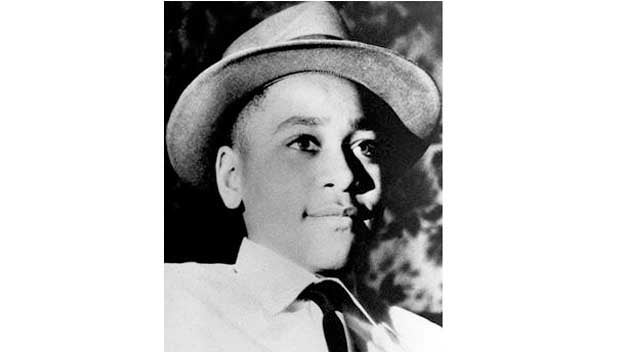Mississippi attorney recalls father’s role as prosecutor in Till case
Published 7:24 am Saturday, January 8, 2022
Tupelo attorney Jak Smith has lived with the Emmett Till case his entire life.
On Dec. 6, the Justice Department closed its investigation into the murder of 14-year-old Till at the hands of two white men, Rob Bryant and J.W. Milam, in August 1955 while visiting family in Money, Mississippi.
Smith was only 7 years old when his father, Robert B. Smith III of Ripley — known as Bobby — was named as one of the special prosecutors in the trial to prosecute Bryant and Milam.
More than 60 years later, Smith served a consultant for the upcoming ABC limited series, “Women of the Movement,” which follows Mamie Till-Mobley, Till’s mother, who until her death in 2003 continually fought for justice for her son through her activism.
The six-part series premiered on Jan. 6 on ABC and Hulu.
Smith still recalls the night J.P. Coleman, the attorney general at the time, called his father to assist District Attorney Gerald Chatham. In his mind, it’s as clear as the day it happened.
THE NIGHT COLEMAN CALLED
“I can remember the look on my mother’s face was one of deep concern because they were bucking the system,” Smith said of the night his father was asked to help prosecute the men who killed Emmett Till. “This trial became the start of the Civil Rights Movement in America … Nobody had ever prosecuted a white man for killing a Black person.”
There were a few reasons Coleman called. Chatham, the district attorney, was in poor health. Chatham contacted Coleman because he needed additional help, Smith said. The two had known each other since law school.
Even at a young age, Jak Smith knew whatever his father decided would carry some weight.
“This was a dangerous case, a dangerous time,” Smith said. “If you were white, and you didn’t toe the line, so to speak, the segregation line, then you were just as in peril, just like a Black person that tried to break the line.”
Coleman realized Bobby Smith might be somebody that could handle the pressure of such personal risk. Bobby Smith was a former FBI agent and World War II veteran. After serving, he returned to Ripley to practice law.
Smith knew something important was taking place when his father looked at him one day and said they might have to move to Colorado. In a few of the letters his father received, some people had offered him a job there if things didn’t pan out.
Smith answered the way one would expect a 7-year-old to:
“I said, ‘Where in Mississippi is Colorado?’”
COULDN’T SAY NO
Smith believes a woman named Josie Booth was one of the primary motivators behind his father’s decision to take up the Till case.
Booth, a Ripley native and Black woman, had raised Bobby Smith and his brother since infancy. Booth raised his children as well. The two, according to the younger Smith, had always been close.
“She was as much a member of my family as my own mother,” Smith said. “I don’t think he could look her in the eye and say no, that he wasn’t going to do that.”
Despite his youth, the younger Smith has some clear memories. A highway patrolman monitored their home 24/7 throughout the trial. It was one of the first televised trials in Smith’s memory, and every night he watched as his father and Chatham tried the case.
The moment when Till’s great uncle, 64-year-old Mose Wright, testified and pointed at Milam and Bryant was when the Civil Rights Movement started, Smith said. Seventy days after Milam and Bryant’s acquittal, Rosa Parks refused to give up her seat on a Montgomery bus. When asked later, she said she did it because of Emmett Till.
Though the all-white, all-male jury acquitted Milam and Bryant, Smith took pride in his father’s bravery. Smith sees one of his roles as keeping his father’s memory alive. Bobby Smith’s secretary kept all his notebooks, original newspaper articles, and letters he received during the trial; decades later, Jak Smith still has these in his possession.
HIS FATHER’S ROLE
The younger Smith still speaks often and with reverence about the role his father played during Milam and Bryant’s trial. He has spoken about the history of the Till case to many historical societies, groups and organizations, and plans to eventually donate his father’s materials to a museum.
As far as Smith knows, his father never suffered any physical repercussions because of his participation in the trial, although Bobby Smith treated its aftermath as many soldiers do following war: He never talked about it.
“I’d give anything I have right now to have one day with my father to just cross-examine him about all the stuff he did and saw and whatever,” Smith said. “I think he was very proud that he had volunteered, and of course, looking back on it, he did the right thing.”
Smith carries that pride. He named his son after his father and followed in his father’s footsteps to practice law. In the aftermath, Bobby Smith received letters of both support and hate. Jak Smith’s favorite letter, signed by Troy O. Melton, reached out to tell him “you made a sincere attempt to fulfill your job” and ended with: “Thanks for the effort YOU gave.”
“I’m proud that my father did what he did, and that they didn’t sweep the thing under the rug, like some people could have done,” Smith said. “That’s what lawyers have done in that respect. They’ve brought a lot of changes to society.”
More News






